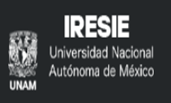AS NOVAS EXIGÊNCIAS DA REPRODUÇÃO DA QUALIFICAÇÃO DA FORÇA DE TRABALHO PARA O AGRONEGÓCIO | The new requirements of reproduction of workforce qualification for agribusiness
Keywords:
Agronegócio, Acumulação flexível, Educação profissional | Agribusiness, Flexible accumulation, Professional educationAbstract
O objetivo deste texto é discutir como as transformações produtivas do capitalismo passaram a exigir novas funcionalidades e qualificações dos trabalhadores para atuar em atividades vinculadas ao agronegócio, analisando, especificamente, a expansão de cursos tecnológicos em agronegócio. Para tanto, adota-se como ponto de partida a caracterização do agronegócio como produto das transformações produtivas que atingiram o país, desde a década de 1990, para, amparado na formulação althusseriana da reprodução da qualificação da força de trabalho, avançar no exame das exigências dos setores mais representativos do capital para a formação dos trabalhadores que atendam às diferentes funções de execução e gestão das atividades ligadas ao agronegócio. A pesquisa adota como método o materialismo histórico e dialético e foi realizada por meio da leitura e análise bibliográfica e do exame de publicações governamentais e representações de classe ligadas ao agronegócio. Os resultados mostram a tentativa de preparar os trabalhadores polivalentes e flexíveis para realizar múltiplas tarefas de execução ou, simplesmente, estarem disponíveis a vender sua força de trabalho qualificada ao mercado
___
The objective of this paper is to discuss how the productive transformations of capitalism have demanded new features and skills of workers to work in activities related to agribusiness, analyzing specifically, the expansion of technological courses in agribusiness. Therefore, it takes as its starting point the characterization of agribusiness as a product of productive transformations that have hit the country since the 1990s, supported to the Althusserian formulation of reproduction of skilled labor force, advance the examination of the requirements of the sectors more representative of capital for the training of workers that meet the different functions of implementation and management of activities related to agribusiness. The research adopts the method the historical and dialectical materialism and was carried out through reading and literature review and survey of government publications and class representations linked to agribusiness. The results show the attempt to prepare comprehensive and flexible workers to perform multiple tasks for implementation or simply being available to sell their skilled workforce to the market.













